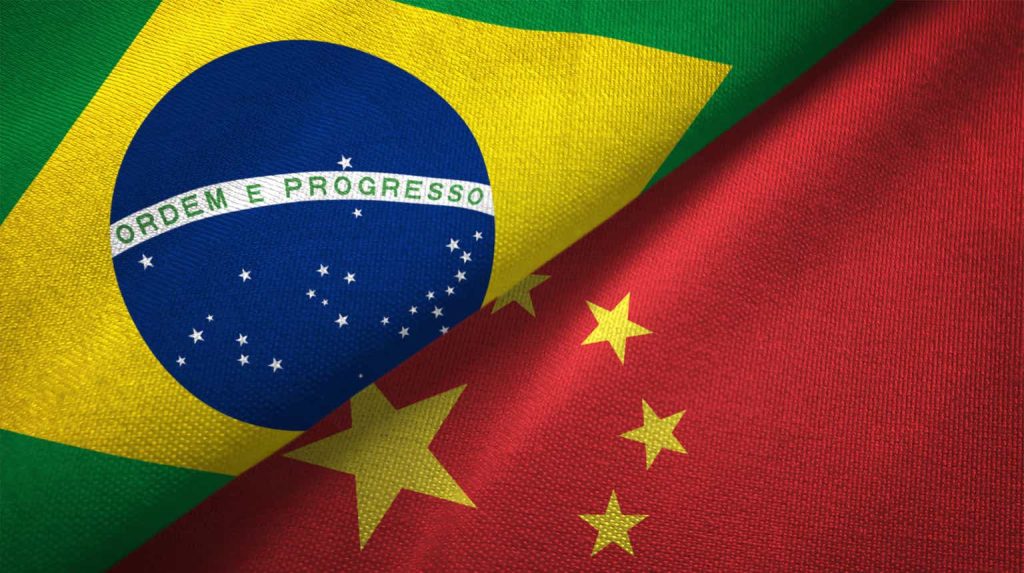On March 29, 523 business representatives from the Brazil and mainland China gathered for the Brazil-China Economic Seminar in Beijing. One of the outcomes was the signature of 20 agreements to facilitate and expand Brazil-China bilateral trade and relations.
The agreements demonstrate efforts to deepen bilateral ties, reinforcing mainland China’s strategic role in Brazilian trade
Bilateral trade grew by 10.1% year on year in 2022 and reached a record USD150 billion. The 20 new agreements have a broad scope, indicating that the Lula administration is looking to prioritize deepening economic ties with China. Lula’s visit to mainland China, which was postponed due to illness, had been planned to last five days and would have included a delegation of around 200 business representatives, compared with the one day that Lula spent in the United States in February, with no clear agreements reached. With Lula absent from Beijing, most agreements signed were between private companies to expand partnerships and trade opportunities. Lula has announced plans to visit China in early April where further negotiations are likely to cover state cooperation, including strengthening technological knowledge sharing and the construction of a satellite to support Amazon conservation.
Mainland China regards Brazil as its largest and most important “comprehensive strategic partner” in Latin America and is likely to continue to pursue deepening economic and political ties with the Lula government during President Xi Jinping’s third term. China-Brazil relations are likely to remain a key component of President Xi’s foreign policy, which has emphasized securing trade routes and building strategic alliances with emerging economies through signature initiatives such as the Belt and Road Initiative (BRI), of which Brazil is not yet a formal member, and the Global Development Initiative (GDI).
Improved market access will generate investment opportunities, while opening knowledge-sharing opportunities
The agreements to improve market access create investment opportunities in multiple sectors. The agreements are broad ranging, particularly expanding opportunities in smart agribusiness, manufacturing, digital economy, and green energy. Mainland China is likely to focus on securing agricultural products and commodities for its domestic market, consistent with President Xi’s policy emphasis on bolstering China’s supply chain and food security. China is also likely to seek to expand infrastructure investments in Brazilian manufacturing and the telecommunications sector. The focus on technology reflects mainland China’s goal of developing high-quality technology exports. Brazil’s willingness to accommodate this is likely to encourage growth in the presence of the service sector and research and development, particularly through knowledge sharing. Successful implementation is likely to boost Brazil’s energy transition, potentially using Chinese technology to improve sustainability across agriculture, manufacturing, transport, and mining. Broader agreements to facilitate trade, including through investment in railway and port infrastructure, would also lower transport and production costs for industry across Brazil. Minister of Agriculture, Carlos Fávaro, has claimed that the new Chinese agribusiness commitments will expand production in the sector and increase export markets, with benefits also including proposals for Chinese funding to repurpose degraded land to avoid deforestation. The strong agribusiness representation at the seminar demonstrated continuing Brazilian political focus on expanding the sector and supporting its growth, despite placing greater focus on environmental standards. The latter is also indicated by plans to create biodiversity credit trading mechanisms to support ESG compliance by firms operating in Brazil.
Measures to permit bilateral trade using local currencies rather than the US dollar are not obligatory and are unlikely to indicate significant change for the financial sector
The agreements include plans to introduce mechanisms allowing trade to be transacted directly in the Brazilian real and the Chinese renminbi. While this may assist trade expansion, the mechanism is optional and the US dollar is highly likely to remain the main (and almost exclusive) foreign currency transaction tool for Brazil’s financial sector in the medium term, with most foreign-exchange deposits and credit likely to remain dollar-indexed. Mainland China has opened similar local currency arrangements with Argentina and Chile with very limited impact on the regular operations of the banking sector. The main change in both countries was a modest reduction in the use of dollar letters of credit for bilateral exports, a pattern likely to be repeated for Brazil. The move to expand trade in local currencies also represents policy continuity, rather than a major shift. Lula has previously discussed reducing US dollar usage in trade on various occasions, supporting the creation of a common regional currency. Lula has avoided framing the partnership with mainland China as representing opposition to the US, and he is likely to continue to seek stronger relations with both countries. Given this goal, the local currency arrangements seem designed to minimize transaction costs for bilateral trade flows.
Indicators of changing risk environment
- If agreements for knowledge sharing between Brazil and mainland China expand into the area of defense, it would indicate a shift from expanding trade ties to a more strategic alliance, with less focus on the US.
- Increased renminbi deposits within Brazil’s banking sector would indicate increased Chinese penetration of the Brazilian market.
- Failure to ratify the EU-Mercosur agreement would encourage increased Brazilian emphasis on its trade relationship with mainland China as an alternative export market.
Original Post
Editor’s Note: The summary bullets for this article were chosen by Seeking Alpha editors.
Read the full article here













